On January 10th, the Supreme Court heard oral arguments on the Gallardo v. Marstiller case. The Court’s decision in this case will impact whether a state Medicaid program can seek reimbursement for past medical expenses from the portion of a tort recovery designated for the beneficiary’s future medical expenses.
Facts
In 2008, Petitioner Gallardo—a thirteen-year-old student who lived in Florida—was struck by a truck after her school bus dropped her off after school. As a consequence, Petitioner Gallardo suffered debilitating physical injuries and brain damage. To this day, Petitioner Gallardo remains in a vegetative state.
In response, Petitioner Gallardo’s parents brought suit against the truck owner and driver to recover for their daughter’s past medical expenses, future medical expenses, lost earnings, and other damages. During the pendency of this case, the Respondent, Florida’s Agency for Health Care Administration (“AHCA”), paid $862,688.77 towards Petitioner Gallardo’s medical care. Ultimately, Petitioner Gallardo’s parents settled the case for $800,000.00. The settlement agreement designated $35,000 of the settlement amount towards compensation for past medical care, and stated that “some portion of the settlement may represent compensation for future medical expenses.”
Following settlement, Respondent AHCA asserted its lien against Petitioner Gallardo’s cause of action—and any settlement of that action—to the tune of $862,688.77. If permitted to do this, Petitioner Gallardo’s parents would be left with nothing from the settlement amount for the care of their daughter. Respondent AHCA pointed to Florida Statute § 409.910, Florida’s Medicaid Third-Party Liability Act, as authorizing the agency to recover this amount.
Issue
Whether the federal Medicaid Act provides for a state Medicaid program to recover reimbursement for Medicaid’s payment of a beneficiary’s past medical expenses by taking funds from the portion of the beneficiary’s tort recovery that compensates for future medical expenses?
Procedural Posture
The Petitioner Gallardo brought a §1983 claim in federal district court alleging that the federal Medicaid statute preempted Florida’s statutory scheme to the extent that it allowed recovery of more than the amount allocated towards her past medical expenses. The district court agreed Florida’s recovery scheme was preempted and granted summary judgment for Petitioner Gallardo.
However, the 11th Circuit reversed the district court’s decision, finding that nothing in the Medicaid Act clearly preempted Florida’s decision to allow recovery from the portion of a tort settlement representing both past and future medical expenses. In so finding, the 11th Circuit applied the “presumption against preemption” interpretive doctrine, absent a clear conflict between the federal and state laws at play.
Oral Arguments
A substantial portion of the arguments heard today focused on the Medicaid Act, as several justices identified an apparent inconsistency within its provisions. On one hand, 42 U.S.C. 1396a(a)(25)(H) seems to limit Medicaid’s potential reimbursement to the portion of the recovery designated for the healthcare items/services paid for by Medicaid (as opposed to future medical expenses). On the other hand, the language of 1396k(a)-(b) is more expansive—this provision requires an individual seeking Medicaid assistance to assign to the state any rights to payment for medical care from any third party (regardless of its past or present nature).
The Respondent’s expansive reading of 1396k induced Justice Breyer to pose one of his famous hypotheticals: would a state Medicaid program be permitted to recover payments for future medical expenses wholly unrelated to the injury in question? As the justices unanimously agreed, such a result would be absurd.
Justice Sotomayor responded to Respondent’s position by observing that Respondent has alternative remedies available. First, the Respondent could challenge the allocation of funds in a settlement if it does not consider the allocation to be representative of reality. Furthermore, if the Respondent remains unsatisfied with the payment allocation or otherwise, it could initiate its own suit for reimbursement against the tortfeasor. The Florida Solicitor responded to Justice Sotomayor’s arguments by stating that this was not the most cost effective method of recovery.
Several justices suggested the possibility of interpreting the Medicaid Act to mirror the Medicare framework regarding future medical expenses. Under Medicare, the beneficiary of a settlement often has to set aside funds to pay for any future medical expenses anticipated to be paid by Medicare. However, the U.S. Government’s Assistant to the Solicitor General argued that no such requirement exists under the Medicaid Act, stating (1) that to hold otherwise would contradict SCOTUS precedent in Arkansas Dep’t of Human Servs. v. Ahlborn (limiting reimbursement for a third-party payment to the portion earmarked for medical treatment); and (2) that a plain reading of the Medicare and Medicaid statutes clearly contemplates two different reimbursement paradigms.
In reaching a decision, the justices will need to weigh the competing interests between the substantial budgetary concerns of states and the circumstances of injured Medicaid patients. As it stands, at least five states currently take the Petitioner’s position on future medical expenses, while six states have adopted the Respondent’s approach.
Predicted Outcome
Based on judicial record and oral arguments, I predict that the Supreme Court will reverse the 11th Circuit’s decision for the Respondent, and rule in favor of the Petitioner 6-3.


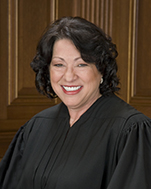
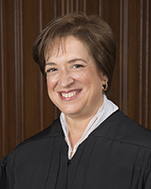
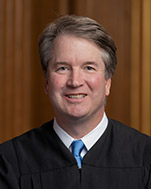

Chief Justice Roberts and Justices Breyer, Sotomayor, Kagan, Kavanaugh, and Barrett for the Petitioner.

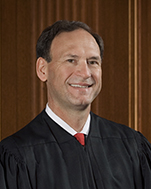
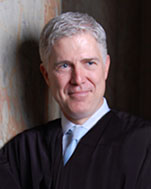
Justices Thomas, Alito, and Gorsuch for the Respondent.
An update will be provided when the Court reaches its decision on this case.
For assistance with personal injury and wrongful death tort claims, contact Attorney John Wilson at [email protected] or fill out our Contact Us form.

John R. Wilson
Attorney
John R. Wilson provides legal services to Litigation, Bankruptcy, Government, and Education Law clients. Prior to joining CGA Law Firm, John served as an Advisor for the Mason Veterans and Service Members Legal Clinic, where he represented clients in military proceedings, veterans’ appeals, and civil matters. John focused his legal studies on national security law and policy, serving as a research assistant to the National Security Institute and the Articles Selection Editor of the National Security Law Journal.
Read John’s Bio Page in full here.
